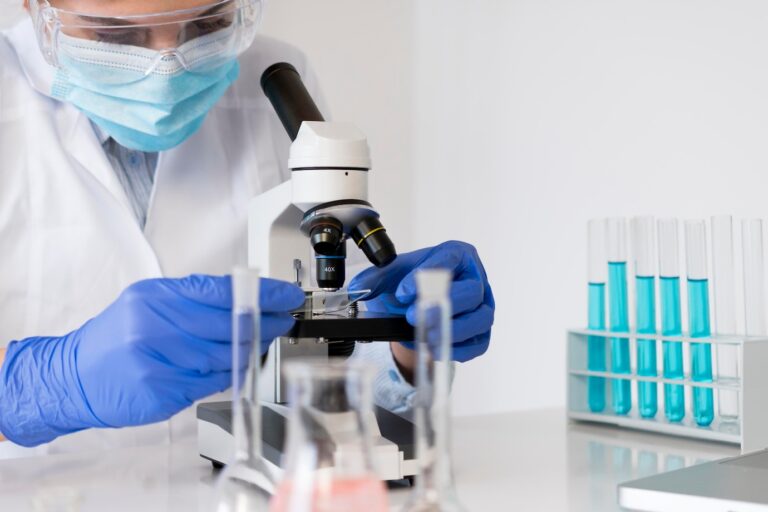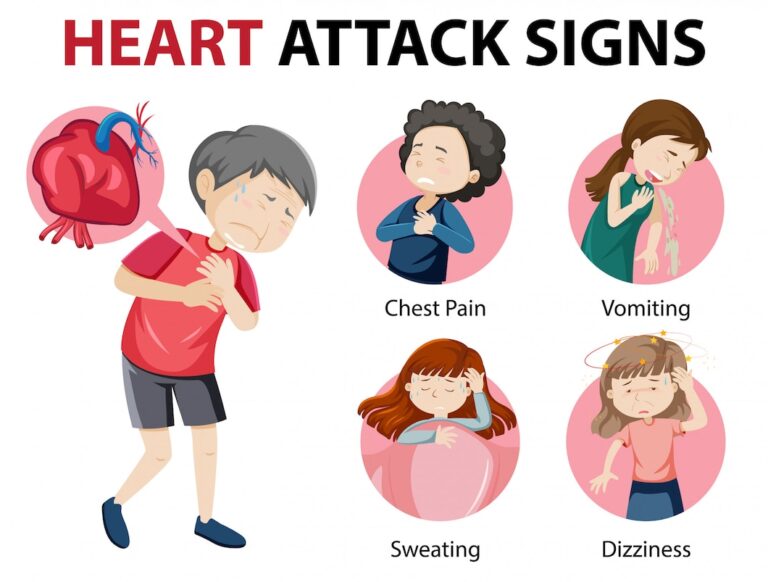Cardiac biomarkers are cardiac enzymes that are released into the blood when the heart suffers from a disease like a heart attack or when it is under stress because this condition disturbs the flow of oxygen to the heart. Then these released enzymes are used to diagnose acute coronary syndrome (ACS). These measurements are also used to calculate the risk of cardiac ischemia (heart muscles lose the ability to pump blood).
Let’s discuss these threats:
Acute Coronary Syndrome (ACS)– It is a term used to describe the condition which is a decline in blood flow to the heart. An acute coronary syndrome is caused by plaque rupture or clot formation in arteries. It is a treatable disease with suitable medication and few lifestyle changes.
Cardiac Ischemia– It is considered a serious disease that causes a decrement in the flow of oxygen-rich blood to the heart. The obstacle in the blood flow can be due to clots in the arteries. Together with coronary artery disease, it contributes to heart failure.
There are some common symptoms for both threats although they vary from each other.
- Chest pain
- Pain from chest to shoulder, arms, back, neck
- Nausea
- Vomiting
- Indigestion
- Breath shortness
- Heavy sweating
CARDIAC BIOMARKER TEST
This test is used to measure the levels of the cardiac biomarker in blood. This includes enzymes, hormones, and proteins. The reason for these cardiac biomarkers to show up is stress or major heart injury like a heart attack. To measure the intensity of heart attacks, the level of these cardiac biomarkers is analyzed. They are also used to diagnose a heart attack. These cardio biomarkers are the following:
- Myoglobin
- Troponin (I or T)
- Creatine kinase (CK)
Myoglobin is a sensitive AMI (Acute Myocardial Infarction) marker but has no specificity. During injury, the myocardium releases it rapidly and within 24 hours it is excreted from the kidneys. It is only present in muscles but due to injury or damage in muscles, it is also found in the bloodstream.
Troponin– They are the most common biomarkers to measure or diagnose. Troponin I or T are isoforms that are highly specific and highly sensitive to cardiac myocytes, this is the reason they are known as cardiac troponins (c Tn). Their detection is important due to cardiac damage. By far it is the best biomarker
Creatine Kinase (CK)– It is the best-known cardiac biomarker for acute myocardial infarction (AMI) identification. It is a cardiac enzyme and protein. It gets doubled during a heart attack.
WHY IS THIS TEST REQUIRED?
There can be two scenarios where this test can be required:
- In case of a heart attack, healthcare experts can recommend it.
- If there is coronary artery blockage
Some symptoms that are related to coronary artery blockage are
- Chest pain for minutes
- Chest pain that is increasing
- Chest pain that lasts for days and doesn’t get cured from nitroglycerine
- Pain in the neck, arms, shoulders, or jaw
There are some other symptoms that occur sometimes and are recommended to get checked.
- Shortness of breath
- Nausea
- Vomiting
- Dizziness and fainting
- Weakness or fatigue (excessive tiredness)
- Irregular or increased pulse rate
CARDIAC BIOMARKER TEST PROCEDURE
It is the same as another blood test mostly in which blood is drawn from your vein through a needle. While injecting the needle there is just a little pain like a pinch.
Then that blood sample is sent to a laboratory for further examination.
WHAT DOES THIS TEST CONCLUDE?
Test results can be different for different people. Cardiac biomarker test results depend on age, gender, health history, family genetics, and other things. These test results can also vary due to the chosen lab for a checkup, for that one can consult with a healthcare provider.
Cardiac biomarkers results are represented in nanograms per milliliter (ng/mL). The main biomarker is Troponin, its level in the blood determines the risk and intensity of heart attack.
It is found that people who are young in age and health have little or no cardiac troponin.
- Troponin I levels are generally less than 0.12 ng/mL.
- Troponin T levels are often less than 0.01 ng/mL.
These cardiac troponin levels if increased up to the normal recommended level (i.e 99th percentile of the reference range) can cause threats to the heart like heart muscle damage or heart attack.
We at Specialty Care Clinic provide services to conduct Cardiac Biomarker Tests. To book an appointment call us at 469-545-9983.



